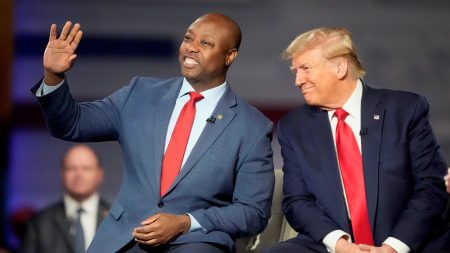Ranked choice voting has become increasingly popular in recent elections, particularly in states like Alaska and Maine. This system involves voters ranking candidates in order of preference, with multiple rounds of tabulation taking place to determine a winner. Supporters argue that ranked choice voting leads to a more inclusive and engaging electoral process, while critics claim it can favor wealthy and extreme candidates.
In Virginia, ranked choice voting played a pivotal role in the 2021 gubernatorial sweeps, with Republican candidate Glenn Youngkin securing the nomination through this method. Former Virginia State Del. Chris Saxman highlighted the value of nuanced electoral reforms, suggesting that the selective implementation of ranked choice voting in his state led to a political earthquake that saw Republicans reclaim power after years of being out of office.
Meanwhile, Alaska Republicans have expressed dissatisfaction with ranked choice voting, particularly following the election of a Democrat in a traditionally red state. Critics argue that the system can lead to the election of candidates who do not align with the majority of voters and may favor those with outside financial support. Efforts are underway to repeal ranked choice voting in Alaska through a statewide ballot initiative.
In Maine, the implementation of ranked choice voting resulted in a surprise upset in the 2018 congressional race, with Democrat Jared Golden unseating the incumbent GOP representative. Despite criticisms from opponents, Golden’s campaign asserts that ranked choice voting is not a significant factor in the current race. Proponents of the system argue that it allows for a broader range of candidates to participate and represents the views of a more diverse electorate.
In response to criticisms of ranked choice voting, Alaskan Democratic Rep. Mary Peltola emphasized the importance of the open-primary system, which she believes gives voice to the majority of Alaskans who do not identify as Democrats or Republicans. Peltola argues that this system allows for candidates who are willing to work across party lines and engage with a broader range of voters to have a chance at success.
Overall, the debate over ranked choice voting continues to unfold in various states, with supporters and critics offering differing perspectives on its impact on the electoral process. While proponents believe it leads to a more democratic and engaging system, opponents raise concerns about its potential to favor certain candidates and disrupt the traditional party structure. The upcoming ballot measures in several states will likely further shape the conversation around ranked choice voting and its future in American elections.














